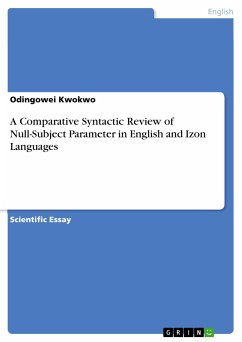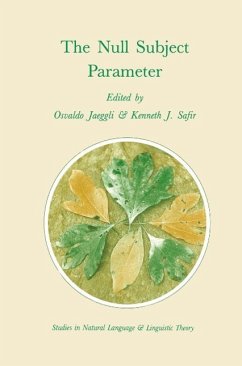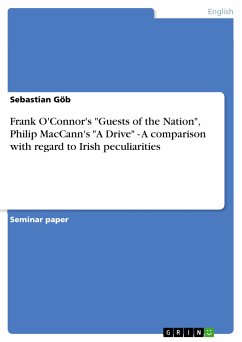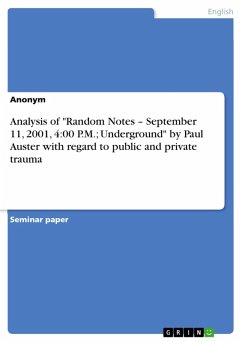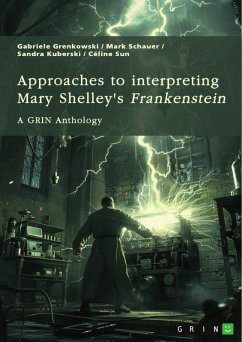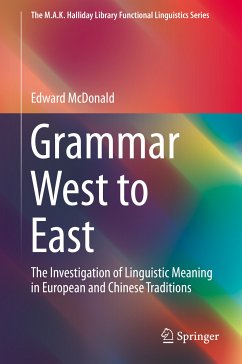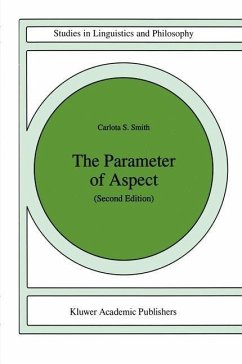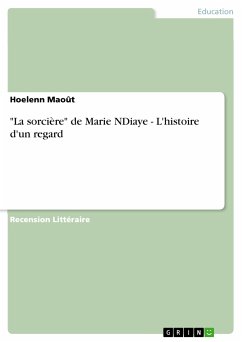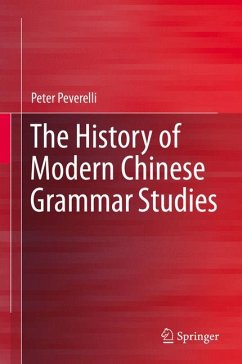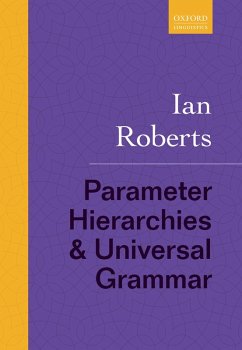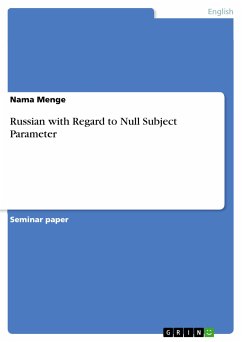
Russian with Regard to Null Subject Parameter (eBook, PDF)

PAYBACK Punkte
0 °P sammeln!
Seminar paper from the year 2019 in the subject English Language and Literature Studies - Linguistics, grade: 1,7, University of Cologne, language: English, abstract: This seminar work examines the pro-drop parameter on the examples of Italian being the standard pro-drop language compared to Russian language. The emphasis is on the problem whether Russian is a null subject language or not and if it is one, is it a classical or a partial one. The paper is organised as follows. The first section gives a brief overview of the theoretical background. The second section analysis the data, which is ...
Seminar paper from the year 2019 in the subject English Language and Literature Studies - Linguistics, grade: 1,7, University of Cologne, language: English, abstract: This seminar work examines the pro-drop parameter on the examples of Italian being the standard pro-drop language compared to Russian language. The emphasis is on the problem whether Russian is a null subject language or not and if it is one, is it a classical or a partial one. The paper is organised as follows. The first section gives a brief overview of the theoretical background. The second section analysis the data, which is discussed in the following section. Finally, the conclusions are maid in the final chapter. "Ever since the ground-breaking observations of Perlmutter (1971), the contrasts between languages that allow subjects of tensed sentences to be null [...] and those that do not [...] has been a classic problem for any serious theory of linguistic typology." (Jaeggli, Safir 1989). The null subject phenomena still catches more and more interest in linguistic researches owing to the observations of multiple correlations between the null subject property and other syntactic phenomena (ibid.). Slavic languages received and still receive very little attention within the government and binding theory / universal grammar. From the perspective of the null subject parameter, Slavic languages should be very attention catching because of their diversion. Especially Russian represents an interesting case. Till this days, linguists all over the world can not decide whether ist is a null subject language or not, whether it is a partial null subject language or something different.
Dieser Download kann aus rechtlichen Gründen nur mit Rechnungsadresse in A, B, BG, CY, CZ, D, DK, EW, E, FIN, F, GR, HR, H, IRL, I, LT, L, LR, M, NL, PL, P, R, S, SLO, SK ausgeliefert werden.




